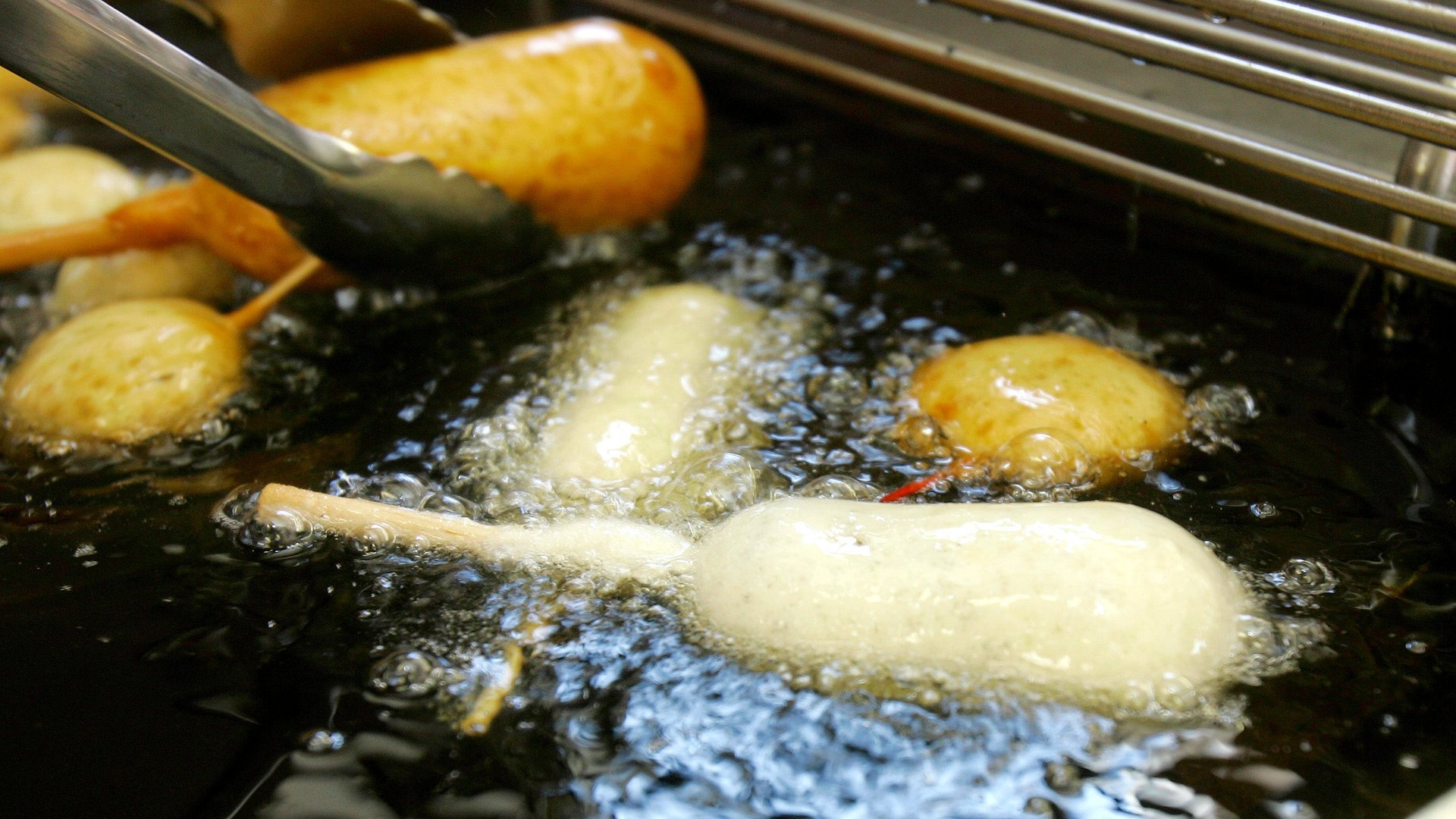Banning trans fats is easy now that companies use much less
Yesterday, the US Food and Drug Administration announced it will take steps to ban the use of partially-hydrogenated oils—a major source of trans fats—in American food. And, unlike other regulatory initiatives, it looks like this one will pass with little friction from industry, which has been eliminating the artificial fat from its products for years under pressure from health activists.


Yesterday, the US Food and Drug Administration announced it will take steps to ban the use of partially-hydrogenated oils—a major source of trans fats—in American food. And, unlike other regulatory initiatives, it looks like this one will pass with little friction from industry, which has been eliminating the artificial fat from its products for years under pressure from health activists.
Artificial trans fatty acids are made by adding hydrogen to vegetable oil in a chemical process that produces semi-solid fats (margarine is a good example) that last longer when stored, create a lighter texture than natural lipids, and are cheaper to produce, too. But—and it’s a pretty big but—they are also associated with much higher health risks, particularly heart disease, and the FDA thinks banning partially-hydrogenated oils will prevent 20,000 heart attacks and 7,000 deaths each year.
And, while some companies will likely file comments with the government in protest of the forthcoming rule, many have already come to terms with it. Since the FDA began requiring food companies to put trans fats on nutrition labels, they have been reduced dramatically. The US Centers for Disease Control said that blood content of trans fats among white adults declined by 58% between 2000 and 2009. A 2010 study by the New England Journal of Medicine found that both food manufacturers and restaurants had significantly reduced both trans and saturated fats in their products; 90% of supermarket products and 96% of restaurant products tested had been reduced.
At the time, one of the study’s authors noted that “the US food industry has been generally responsible in replacing partially hydrogenated oils with more healthful oils, [and] that should pave the way for the US Food and Drug Administration to eliminate partially hydrogenated oils from the food supply.”
Packaged food giant Mondelez’s US products, including Oreo cookies, have already eliminated most trans fats. Companies General Mills, Nestle and Tyson Foods have all said that they look forward to complying with the new rule, and the National Restaurant Association, the sector’s largest trade organization, also voiced its support for the trend toward cutting out the artificial fat. Companies are loathe to associate themselves with unhealthy foods, even if some—especially pastry makers—may need to replace trans fats with other ingredients or adopt new cooking techniques.
Denmark, Austria, Iceland and Switzerland have all eliminated artificial trans fats from their food.